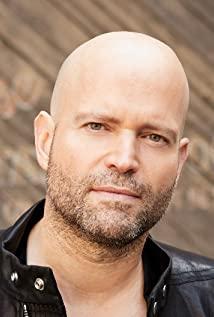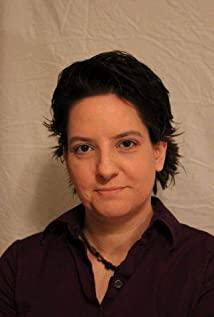"Stranger Than Fiction" (Stranger Than Fiction), the original name is really good, translated into Chinese "Fantastic Life", lost a lot of flavor.
This movie was long overdue, but I didn't finish watching it until yesterday, just because I saw its English name. Fiction - fiction, fictional story; stranger - stranger, or the comparative of strange.
Anyone who is theorizing about literature can use this work as a classroom example, showing almost all elements of literary studies—authors, protagonists, researchers, the world, and the text itself. The protagonist traces the process of the voice describing his life, and the process in which Hoffman's literary professor analyzes him can well explain the secrets of the unfolding of literary works. In other words, what exactly the author does with the fate of the protagonist, and how the protagonist takes control of his own destiny, has an inescapable narrative mode—as in Echo and Calvino, or in earlier Russian forms All fictional works are especially autonomous, and the plot moves forward along a patterned thread.
In the movie, Hoffman analyzes a passage of which literary works the protagonist may belong to, and can also be regarded as a psychoanalytic interpretation of literary characters: your life has already been described by a certain novel. This is what Wilde said, not art imitating life, but life imitating art. Literary and artistic works are not just consumer goods, they also potentially influence (or even guide) our lives and help us know ourselves. The actualization of literary characters is very common. For example, we often talk about someone's hesitation like Hamlet. This naming is very likely to help him recognize his embarrassing situation and provide him with a possibility.
There is a kind of popularized criticism in the movie. Auditor Harold has been instrumentalized by modern society and lost his subjectivity, but his redemption begins by infiltrating his life through the writing of the writer. Before that, he had nothing to do. known. This is one of the consequences of ideology - we know nothing about it, but do it diligently (Zizek). When Harold discovered that his life was prescribed, he developed a desire to break through this predicament. The ending of the story is terrifying: on the one hand, Claude can never get rid of the author's decision to decide his fate, his original death is tampered with, and thus obtain the beginning of a happy life; on the other hand, the author himself also through his own characters. Redemption is achieved by intertwining with reality (look at her outfit at the end, which is completely different from before), which shows us that the real death is not the real Harold, nor the fictional Harold, but Author Thompson's, is her struggle in the inevitable death ending. If you remember Calvino mentioned by Hoffman in the film, you will understand this very well, Calvino said: All stories have only two directions, one continues life, and one is inevitable die. Obviously, the first will inevitably lead to the second.
Harold didn't die, neither did the author, they survived at the end of the altered novel, their deaths delayed as if impossible, and that's what I call scary--a A film about life's tragedies that ends in a cheesy comedy. This is the second result of the so-called ideology, which they know very well, but still do it diligently (Zizek). All wise life is an inevitable tragedy, but go on rejoicing. Hollywood has once again soothed our pain. Before the end of the movie, Harold has been exaggerating that Harold has the best ending, and of course the most vulgar ending, trying to save a child from being hit by a car. Of course, death is a necessary factor in the ending, but the way of death should never be so "bright".
Actually, the movie has one of the best endings, but it didn't choose it. That's when Harold ran down to the underpass to call the author, and the phone rang untimely in the author's room... .
This is the end, death is inevitable, but the process to it is unknown, and the life process of Harold, the author, and everyone is in this unknown.
Is life a comedy or a tragedy? Essentially, it can only be tragedy, and comedy is sometimes more tragic than tragedy. The beauty of popular culture is that it makes people lose their sensibility and bravery for tragedy, and the disadvantage is that we basically forget the cruelty of reality as a whole, and it is actually more than we think.
View more about Stranger Than Fiction reviews











